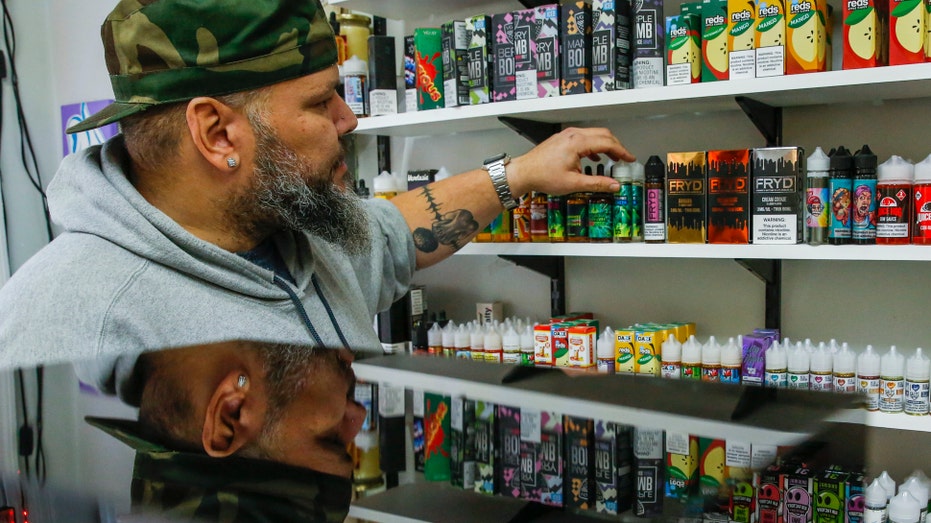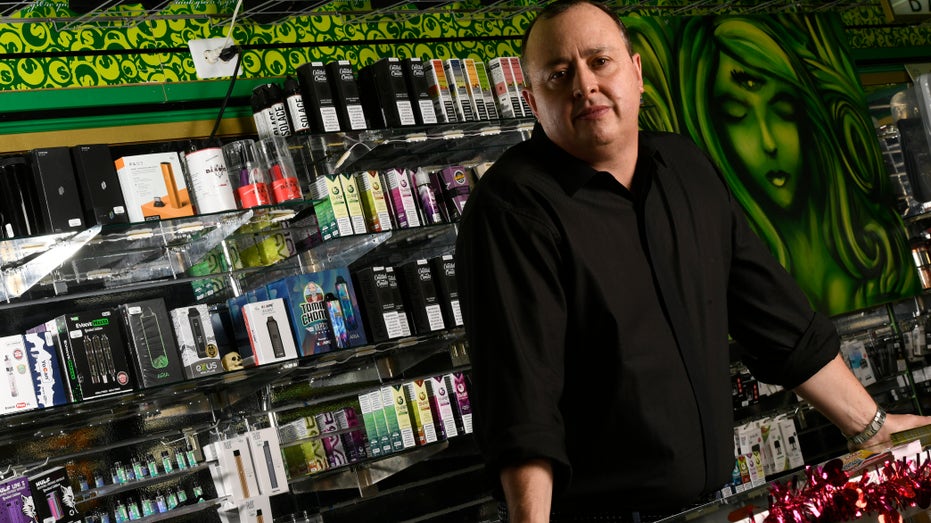Democrats' spending bill will cripple this $6B industry, experts warn
Democrats' proposed nicotine tax may cripple the vaping industry and drive consumers back to cigarettes
The latest version of Democrats' Build Back Better Act is poised to cripple the multi-billion dollar American e-cigarette and vaping industry and could drive tobacco-free nicotine pouches from the market altogether, experts warn.
The most recent version of Democrats' spending bill leaves tobacco taxes untouched, while imposing heavy taxes on e-cigarettes and vapes, as well as tobacco-free nicotine pouches and lozenges.
The e-cigarette and vaping industry in the U.S. is worth over $6 billion. The U.S. market for tobacco-free nicotine pouches and lozenges is relatively smaller, but still accounted for over $420 million in sales last year, according to Federal Trade Commission (FTC) statistics. If passed, the new tax would cut deep into both markets.
BIDEN'S SOCIAL SPENDING, INFRASTRUCTURE BILLS ON TRACK FOR HOUSE VOTE FRIDAY
The provision is intended to help fund Democrats' massive proposed social spending package by trying to bring taxes on tobacco-free nicotine products in line with the tax rates on tobacco products.
But its method of doing so is ill-conceived in its attempt to treat tobacco products and tobacco-free alternatives the same, and ham-fisted in its execution to the extent that many tobacco-free products will be at a severe disadvantage to similar tobacco products, critics say.

A worker organizes flavors for E-cigarettes and vape devices in a local store in Jersey City, New Jersey. ( (Photo by Eduardo Munoz Alvarez/Getty Images))
"States often tax nicotine products by price, and the tax on the product will pyramid since the federal tax would be levied at the manufacturer level and the state tax is levied at the distribution level. In effect, the state tax base includes the federal tax and becomes a tax on a tax," The Tax Foundation, an independent tax policy nonprofit, warns in its analysis of the proposed nicotine tax.
"This means that even if the taxes on tobacco and other nicotine products are approximately equal at the federal level, by the time it reaches the consumer, the nicotine product will carry a higher tax (and often a higher price)."
As a result, industry experts say, the bill will both kill jobs and drive many nicotine users back to the tobacco products that they sought to quit in the first place.
"The effect will be a massive protection of the American market for tobacco cigarettes," Gregory Conley, the president of the nonprofit American Vaping Association, told FOX Business.
If implemented, the tax will result in the closure of many small, independent vape shops that are found across the country, Conley warned.

Phil Guerin, owner and founder of Myxed Up Creations, a store that sells vaping products, poses for a portrait in his shop at 5800 East Colfax Avenue in Denver, Colorado. Guerin and other vape supporters argue that vaping is safer than cigarettes and (Helen H. Richardson/MediaNews Group/The Denver Post via Getty Images)
Vaping360, a popular media outlet in the vaping industry, warned its readers that the proposed tax is "big enough to destroy the independent vaping industry and send many vapers back to cigarettes" and "would essentially double or triple the price of most bottled e-liquid."
But the biggest tax hike of all will be on nicotine pouches and lozenges.
The bill taxes products by milligrams of nicotine, even though the extent and speed of nicotine absorption is highly dependent on the method of consumption. Pouches require much higher levels of nicotine to produce the same effect as e-cigarettes, due to the difference in how the chemical is absorbed in the mouth versus the lungs.
The Tax Foundation warns that "due to the flawed definition of nicotine products in the bill, nicotine pouches, a relatively novel product which is consumed similarly to snus or dipping tobacco, will be taxed at very high rates."
"Absorption through the mouth is slower than through the lungs, so these products require higher nicotine contents to satisfy consumers. Importantly, higher nicotine content does not translate to higher absorption."

Democrats' proposed nicotine tax could drive vaping stores out of business, advocates warn (Photographer: Jovelle Tamayo/Bloomberg via Getty Images / Getty Images)
As a result, the entire category of nicotine pouches is "unlikely to survive" if the tax is implemented, the analysis concludes, predicting that some states could see prices rise to nearly $20 per can of 20 couches.
Both the social spending bill and the bipartisan infrastructure bill are on track to be brought up for a House vote on Friday.
GET FOX BUSINESS ON THE GO BY CLICKING HERE
House Democrats' path to implementing the proposed nicotine tax does face a major hurdle, however.
Democratic West Virginia Sen. Joe Manchin, whose vote is crucial for passing the bill in the Senate, said in an interview with Fox News' Bret Baier on Wednesday that a nicotine tax "doesn't make any sense to me whatsoever."




















